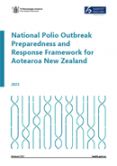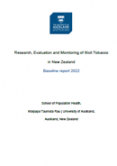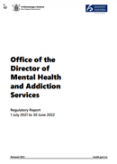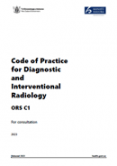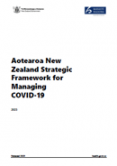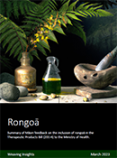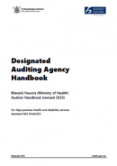Sort by:
Filter results by:
Category
- About the Ministry (61) Apply About the Ministry filter
- Addiction (119) Apply Addiction filter
- Disability (51) Apply Disability filter
- Diseases & conditions (155) Apply Diseases & conditions filter
- Emergency management (18) Apply Emergency management filter
- Environmental health (71) Apply Environmental health filter
- Health system (69) Apply Health system filter
- Hospitals & specialist care (48) Apply Hospitals & specialist care filter
- Lifestages (177) Apply Lifestages filter
- Mental health (91) Apply Mental health filter
- Nursing (14) Apply Nursing filter
- Populations (145) Apply Populations filter
- Preventative health (117) Apply Preventative health filter
- Primary health care (26) Apply Primary health care filter
- Regulation (58) Apply Regulation filter
- Series publications (115) Apply Series publications filter
- Statistics (212) Apply Statistics filter
- Suicide (20) Apply Suicide filter
- Surveys (79) Apply Surveys filter
- Workforce (41) Apply Workforce filter
Publication type
- Consultation (67) Apply Consultation filter
- Consumer information (17) Apply Consumer information filter
- Corporate publications (67) Apply Corporate publications filter
- Data sets (21) Apply Data sets filter
- Evaluation and review (229) Apply Evaluation and review filter
- Gazette notices (5) Apply Gazette notices filter
- Guides and standards (202) Apply Guides and standards filter
- Research (81) Apply Research filter
- Statistical publications (167) Apply Statistical publications filter
- Strategies and plans (118) Apply Strategies and plans filter
Published date
- 2024 (8) Apply 2024 filter
- 2023 (62) Apply 2023 filter
- 2022 (85) Apply 2022 filter
- 2021 (79) Apply 2021 filter
- 2020 (72) Apply 2020 filter
- 2019 (82) Apply 2019 filter
- 2018 (59) Apply 2018 filter
- 2017 (67) Apply 2017 filter
- 2016 (97) Apply 2016 filter
- 2015 (110) Apply 2015 filter
- 2014 (81) Apply 2014 filter
- 2013 (21) Apply 2013 filter
- 2012 (17) Apply 2012 filter
- 2011 (20) Apply 2011 filter
- 2010 (18) Apply 2010 filter
- 2009 (13) Apply 2009 filter
- 2008 (16) Apply 2008 filter
- 2007 (11) Apply 2007 filter
- 2006 (10) Apply 2006 filter
- 2005 (6) Apply 2005 filter
- 2004 (13) Apply 2004 filter
- 2003 (8) Apply 2003 filter
- 2002 (9) Apply 2002 filter
- 2001 (4) Apply 2001 filter
- 2000 (2) Apply 2000 filter
- 1998 (4) Apply 1998 filter
Publications
Search below to find Ministry publications.
-
National Polio Outbreak Preparedness and Response Framework for Aotearoa New Zealand
18 October 2023The National Poliomyelitis Response Framework provides a toolkit for how Aotearoa would respond to various scenarios in which there was detection of polio, including a polio outbreak, in New Zealand.
-
Research, Evaluation and Monitoring of Illicit Tobacco in New Zealand: Baseline report 2022
12 October 2023This publication is the first in a series of reports designed to provide an independent baseline of illicit trade in tobacco in Aotearoa.
-
Ngā Wānanga Pae Ora 2023 – Summary Report
04 October 2023This document brings together the voices, reflections and themes raised at Ngā Wānanga Pae Ora 2023, which informed the development of Pae Tū: Hauora Māori Strategy and other Pae Ora health strategies.
-
Office of the Director of Mental Health and Addiction Services Regulatory Report 1 July 2021 to 30 June 2022
25 September 2023The Office of the Director of Mental Health and Addiction Services Regulatory Report 1 July 2021 to 30 June 2022 provides information and statistics relating to the use of compulsory mental health assessment and treatment legislation in Aotearoa New Zealand.
-
Maximum numbers of approved smoked tobacco retail premises permitted in areas of New Zealand
15 September 2023Currently there are around 6,000 retail stores selling smoked tobacco products in Aotearoa
-
Revised Code of Practice for Diagnostic and Interventional Radiology ORS C1
07 September 2023A revised Code of Practice for Diagnostic and Interventional Radiology Office of Radiation Safety (ORS) C1 (revised C1) was available for public consultation.
-
Aotearoa New Zealand Strategic Framework for Managing COVID-19
01 September 2023The Aotearoa New Zealand Strategic Framework for Managing COVID-19 sets out the direction for the long-term management of COVID-19 for our country.
-
Summary report for the Rongoā Workstream
31 August 2023The summary report of engagement, prepared by Weaving Insights, was part of work led by Manatū Hauora for the rongoā workstream
-
Designated Auditing Agency Handbook
28 August 2023The purpose of this handbook is to state Manatū Hauora’s requirements of designated auditing agencies (DAAs) for auditing and audit reporting for the certification of health care services under the Health and Disability Services (Safety) Act 2001.
-
Precision health: exploring opportunities and challenges to predict, prevent, diagnose, and treat health needs more precisely in Aotearoa New Zealand
07 August 2023This publication is the inaugural Manatū Hauora Long-term Insights Briefing on the topic of precision health.
Can't find it? Try the Library Catalogue for older publications, the HealthEd website for brochures and pamphlets, or email [email protected]

